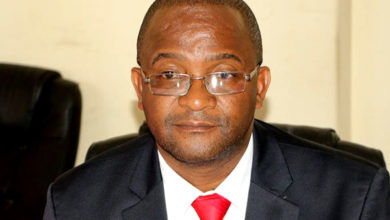
Children, as young as 12 years in Bulawayo are smuggling drugs such as marijuana into school and smoke it during break time to get high, a senior government official has revealed.
The children allegedly stuff marijuana, popularly referred to as mbanje, in their school ties, enter the school premises undetected and smoke it during break time.
This was revealed by Minister of State for Bulawayo Metropolitan province, Judith Ncube, speaking about the scourge of corruption that has negatively affected communities during a United Nations Anti-Corruption Day commemoration hosted by Zimbabwe Anti-Corruption Commission (ZACC) at Mhlahlandlela Government Complex Monday.
Ncube said she attended a meeting in the city last Friday where schoolchildren gave descriptive tales about their encounters with drugs.
She attributed such acts to the corruptive nature of society, which had resulted in these destructive behaviours.
“I am touched when we talk about corruption because that has affected the whole society of Zimbabwe…,” the minister said.
“Children as young as 12 years, are now a part of this cancer. One child described to us how they carry marijuana to school. They stuff the marijuana into their school ties and the children will be looking smart. Come break time they smoke some of it and go back to class, still looking smart but the teacher will realise a change in their behaviour.
“When the teacher confronts the child, the learner does not see the teacher but instead sees a chick (sic) because they will be high and respond back as if they are shrugging off a chick. In turn, the teacher just lets the child be. Yet you as a parent continue paying fees for the child who is no longer learning or receiving educational assistance.”
The minister said most people tend to focus on corrupt activities within government and ignore corrupt activities within their own home.
“Some of us make maputi, buns and freezits to sell and children told us when you sell these to them you add drugs. You add drugs in the maputi, inside the buns and in the freezits. This is aimed at destroying the nation of Zimbabwe.”
“There will come a time when a generation gap will happen unless and until we all put our heads together. One other child was telling us a well-treated drug consists of battery water, fertiliser and rat killer. What does it tell us as parents as a nation of Zimbabwe, as Bulawayo? We can’t sit back and do nothing, possibly there is someone who is involved in corrupt activities and profiting from such strategies that cause destruction among children,” she warned.
Ncube said corruption is a threat to the Sustainable Development Goals, which culminated in the 2018 theme: United against Corruption.
“This event is a symbol of President Emmerson Mnangagwa’s commitment to zero tolerance to corruption. It shows commitment from the government to fight against corruption in order to assist all sectors to pursuit developmental success. Poor governance has entrenched the system of corruption, which remains a major challenge for sustainable development,” she noted.
The United Nations Anti-Corruption Day belated commemoration coincided with the opening of a ZACC Bulawayo office at Mhlahlandlela to be manned by two investigators and the unveiling of a Clients Service Charter.
ZACC Deputy Chairperson, Dr Nanette Silukhuni, said the unveiling of the Client Services Charter clearly set out the service standards.
“The rights of the clients include: right to protection whenever you report a case, lodge without fear and the right to access information and have privacy. In the same vein there are certain obligations expected from clients. Refrain from offering gifts or other favours to ZACC staff it’s a sin. The ZACC staff are well paid and don’t need your bribes,” she said, adding nearly 400 cases had been reported for this year, up from 294 in 2017
Dr Silukhuni highlighted that the international anti-corruption day, commemorated on December 9 each year, marks 15 years since the United Nations convention against Corruption (UNCAC) was adopted making it the largest international anti-corruption treaty with nearly 186 country signatories to date.
The event was also attended by the National Prosecuting Authority, academia, civic society business community, the Zimbabwe Republic Police and the Zimbabwe Correctional Prison Services who gave solidarity speeches against corruption.





